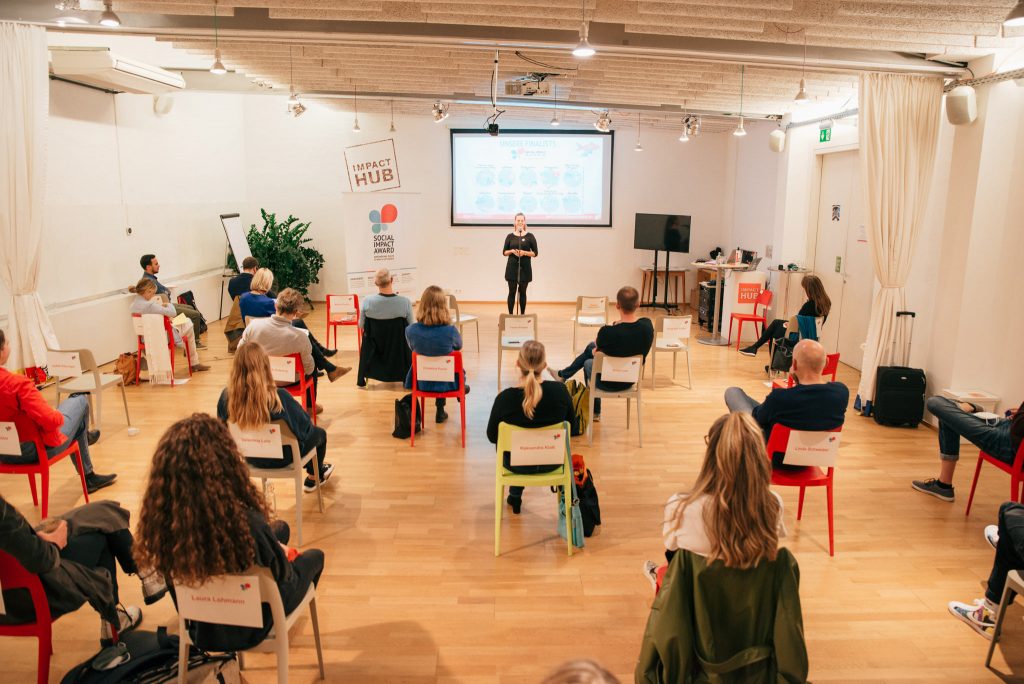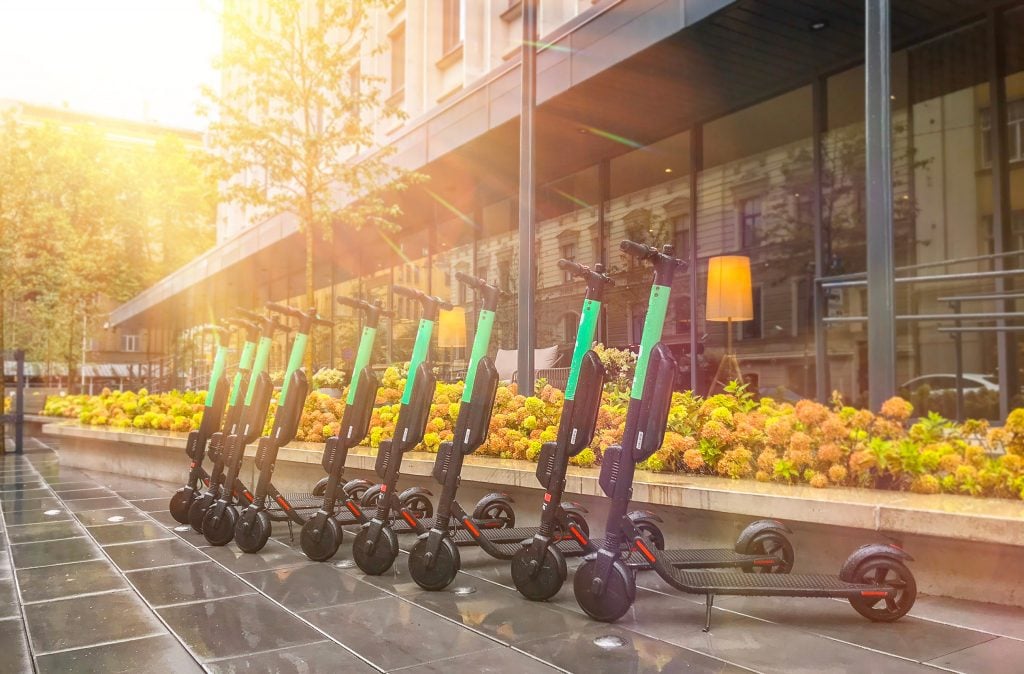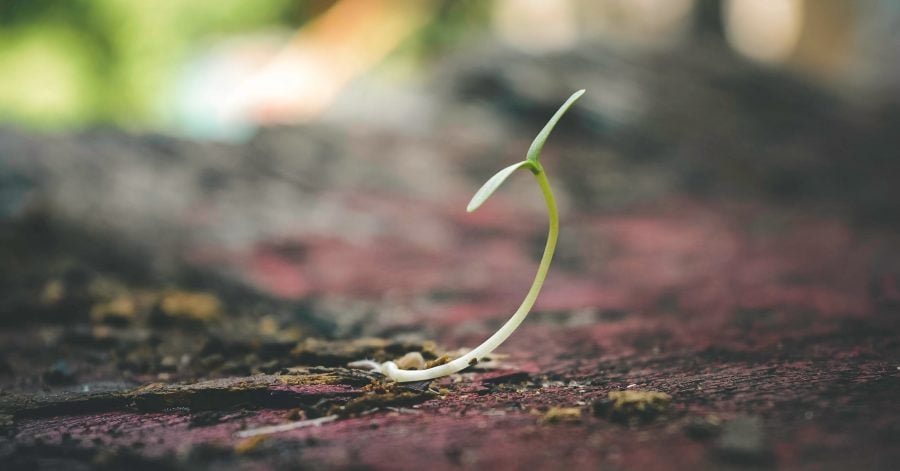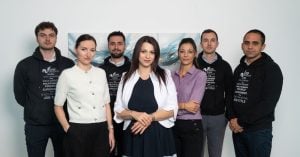Whether you are cooking up a sustainable business idea, building a prototype for your cleantech startup, or looking to grow, you must know your funding options. If you’re looking for sustainable finance programs on the market that best align with your goals, here’s a list for you.
The Recursive has extensive experience connecting with finance-side stakeholders in the innovation ecosystem. In this article, we will be listing the most relevant sustainable finance sources you can access in the first stages of your startup: ideation, launching, and growth.
The big picture: In Southeast Europe, the impact investment wave has only just taken shape on the horizon, however, some early actors are including social and ecological aspects in their investment criteria. For impact investors, providing capital to address sustainability issues is both good business and a matter of values and passion.
When it comes to crowdfunding, or engaging family and friends into financing green startup ideas, it helps that as a society we have an increasing awareness about sustainability issues such as climate change, pollution, and biodiversity loss. More and more successful startups on crowdfunding platforms communicate a social or environmental return.
And then there are various pan-European or national economic development and resilience funds – either grants or loans – that target “glocal” sustainability issues under the “think globally, act locally” motto.
1. The first steps: From bootstrapping to crowdfunding

Some entrepreneurs prefer bootstrapping their business, i.e. raising the initial capital from their financial savings, with no outside support. In the early stages, if afforded, bootstrapping may be an effective strategy for you (as proven by numerous successful entrepreneurs), as it encourages a more minimalistic and self-sustaining business approach.
At both early-stage and seed stage, if you cannot invest your own money, or turn to family or friends for financial support, you can use crowdfunding platforms. These will allow you to access a wide pool of small, like-minded investors, who are looking to invest in your vision for the future.
Crowdfunding may give you the necessary money to develop your first product, assemble a team, and get ready to pitch to investors. Equity crowdfunding can also bring you your first shareholders. And if you are new to it, here is a guide to crowdfunding for absolute beginners.
In Southeast Europe, social impact and cleantech startups have successfully tapped crowdfunding platforms.
For instance, in Romania, the SeedBlink community of investors is supporting cleantech startups at both pre-seed and seed stages. Such an example is R-CREATE, the first technology platform in Romania, which offers reusable packaging solutions to online retailers, to ensure their transition to a circular economy model. The company raised €245K in equity, 18% above its initial target. Another example is Apiary Book, an agritech startup for the management of apiaries – they attracted €200K in funding in 2018.
Elsewhere in the Balkans, act4Greece uses crowdfunding to invest in projects with social and environmental goals. The platform is backed by the National Bank of Greece and various non-profit organizations.
2. Join startup incubators and accelerator programs with a sustainability focus

If you have an ambitious startup idea, one of the best decisions you can make to access sustainable finance is participating in an incubator or accelerator program. Both will help you reach out to potential investors, as well as define your financial strategy and investment pitch.
When choosing between an incubator and accelerator, you need to bear in mind some key differences. Incubators have a longer-term, slower perspective and usually target early-stage startups. Accelerators have a short-term, alert focus and can also address growth-stage startups.
If your startup has a strong social component, you can apply to programs organized by the regional branches of European organizations such as the Social Impact Award (SIA) and Ashoka. The SIA competition teaches startups the necessary skills to navigate towards business cases and gives exposure to investors. Their vision of social impact includes finding solutions to environmental issues that affect us all, such as climate change, food waste, and biodiversity loss.
And SIA has awarded many sustainability-focused startups in recent years. Some recent winning ideas include Øko in Romania, an eco-streetwear clothing brand of 100% upcycled t-shirts and EdiStraw in North Macedonia, a company producing biodegradable drinking straws.
When it comes to climate change mitigation solutions, the ClimateLaunchpad pre-accelerator organized by EIT Climate KIT (which we discuss at length here) is one of the world’s largest green business ideas competitions. In the Balkans region, ClimateLaunchpad is available in Romania and Kosovo. Green startups that have participated in the program vary from Reactive Boards, the electric longboard company, to Moveatile, the solution to extend the lifetime of tiles through a detachable ceramic fixing system.
Another renowned support program for the circular economy and clean technologies is Cleantech Bulgaria. The seed accelerator has supported over 70 projects and 200 startups in 35+ countries.
Across the Balkans, you can also access the NESsT & Ikea Social Entrepreneurship accelerator, the Climate Vertical Hackathon recently launched in Romania, (we introduced it here), and the Transformator business transformation program (more about it here).
3. Access governmental funds and grants for sustainability challenges

Early-stage startups, as well as more mature businesses, can also apply to government programs focused on sustainable development in their region.
The EEA and Norwegian grants, for example, have allocated €2.8Bfor 2014-2021 to 15 countries in Central and Southern Europe, and the Baltics.
In Romania, €23.5Mwere allocated to the environment and another €63Mto the energy sector. For this year, the open call for project proposals from small and medium-sized enterprises will be open until September 2021.
Within the same program, an open call for applications with a focus on green industry innovation launched in Bulgaria. It will be open until June 2021.
In Romania, another initiative that uses European grants is Social Start-up. It is structured as a competition and acceleration program for social entrepreneurs. In 2021, they selected 12 businesses for further financing, with a maximum of €100K per participant.
More niche programs also exist. Test Farms organized by Impact Hub Bucharest and funded by the European Union has a support scheme for agrifood and agritech innovators, including a testing budget of €3000.
4. Seek angel investors and VCs with an eye for sustainable finance

After you define a solid business plan and become skilled in pitching to external stakeholders, you may want to address a new category of investors: business angels. They provide capital in exchange for ownership equity or convertible debt, usually in the range of €60K to 600K.
Angel investors looking to fund initiatives with sustainability goals will have a double motivation: financial gains and social or environmental returns. For startups, this increases the complexity in measuring and reporting impact.
You will often find angels interested in sustainable finance, tied to business incubators and accelerators like the ones we mentioned earlier. You can also find them on mainstream platforms such as AngelList, Crunchbase, and Gust.
Often, they also build communities of their own. This is the case for Smart Impact Capital, a Romanian-based team of investors. They target startups at early and very early stages in the CEE region, with micro-investments up to €100K. Their goal is to impact businesses with a solid social or environmental return.
For hyper fast-growing startups, a more sophisticated funding option is venture capital. Often, companies reaching out for VCs funds require millions of euros to expand sales, launch in new markets, or develop new products. VCs will look for businesses that can produce huge multiples in business value in a short span. Luckily, areas such as cleantech that can fuel the transition to a more resilient world are more and more in the VC investors’ focus.
One of the reasons for Romania’s rise as a hub for tech and innovation is the presence of venture capital firms. For instance, Sparking Capital is an early-stage micro fund, with an eye on circular economy tech startups and disruptive business models. They have recently invested in EcoTree, a digital marketplace for managing waste and accelerating collaboration between actors in the recycling industry.
Many investors see Southeast Europe as an increasingly attractive region for green investment. Urban Impact Ventures from Bulgaria is looking to invest in very late seed stage, pre-Series A, or series A startups that can improve the quality of urban life. Cities are at the heart of creating a more sustainable world, having both a larger ecosystem footprint and more resources to address complex challenges. UIV mentions green buildings, urban farming, waste and circularity, electric vehicles, and a sustainable lifestyle among its investment themes.
Eleven Ventures has also invested in a variety of local and global startups, including Strawberry Energy, developer of solar-powered urban furniture for smart cities, and Econic One, an e-bike reservation service.
These lists are never complete. So, if you represent or know a sustainable finance initiative in Southeast Europe for sustainability-driven startups, drop us a line at [email protected]. We would be thrilled to include you.








